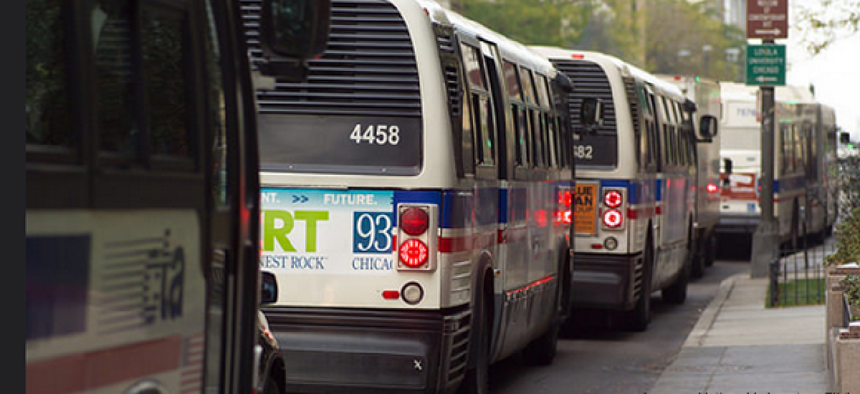Chicago busts bus bunching


Connecting state and local government leaders
Chicago is implementing a Bus Transit Management System to address the "bunching" that has contributed to inefficiency in its public transportation.
Chicago is launching a two-way bus communication system that will provide real-time monitoring of bus movement and prevent delays caused by bus bunching – when two or more buses traveling the same route arrive at the same stop at or very close to the same time, causing extended wait times between buses.
Through touch-screen terminals and GPS equipment on every bus, the Bus Transit Management System (BTMS) monitors the location of the buses and allows for improved two-way communication between drivers and the command center. Command center personnel, in turn, will be able to monitor conditions of buses en route and adjust courses depending on perceived delays or bunching. Additionally, staff will be able to send mass-communication messages to multiple drivers in a particular area to warn them of a particular event such as police or fire activity.
BTMS replaces an outdated radio communications system that is at the end of its useful life, and does not provide location information or other state-of-the-art functionality of the new system. BTMS is built upon the same system that powers Bus Tracker and automated bus announcements, the Transit Authority said.
Chicago has been investing in technology to improve service to citizens and modernize the transit system, said Forrest Claypool, president of the Chicago Transit Authority. “This includes installing 4G wireless service in our subways, substantially expanding and enhancing Bus and Train Tracker service and increasing the number of security cameras on every CTA bus, train and station.”
The new system from Clever Devices Ltd. has been installed on about 80 percent of the bus fleet so far, and transit officials told the Chicago Tribune that the first three months of a trial period this year have shown promising results. The city hopes to outfit all of its 1,800 buses with BTMS, which will cost $8.8 million.
Miami worked with IBM on a predictive analytics tool that also addresses bus bunching. Leveraging IBM’s Intelligent Transit Analytics, city and transportation officials could better schedule bus routes and times based on data from IBM’s predictive technology, which provided alerts when bunching was likely to occur nearly 60 minutes in advance. The data allowed analysts to view bus paths, speeds and stops enabling more accurate bus arrival prediction.
NEXT STORY: States go for mobile makeovers




